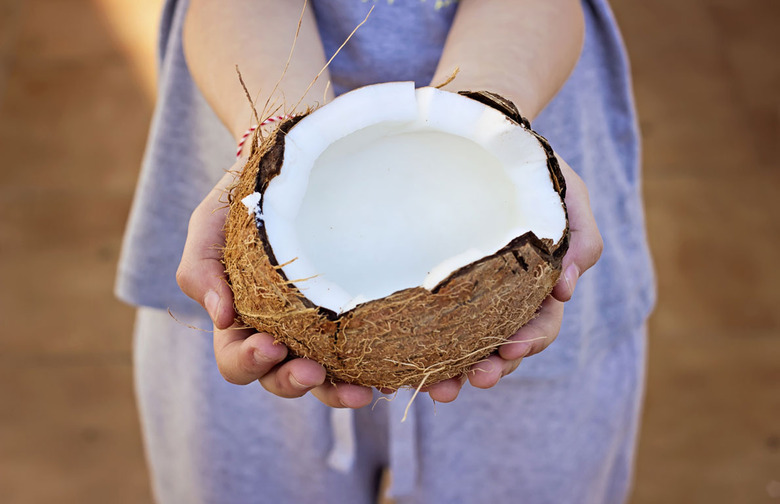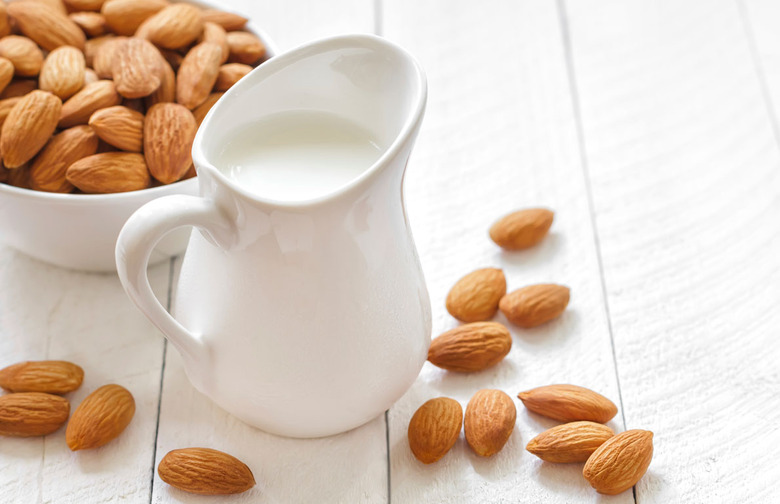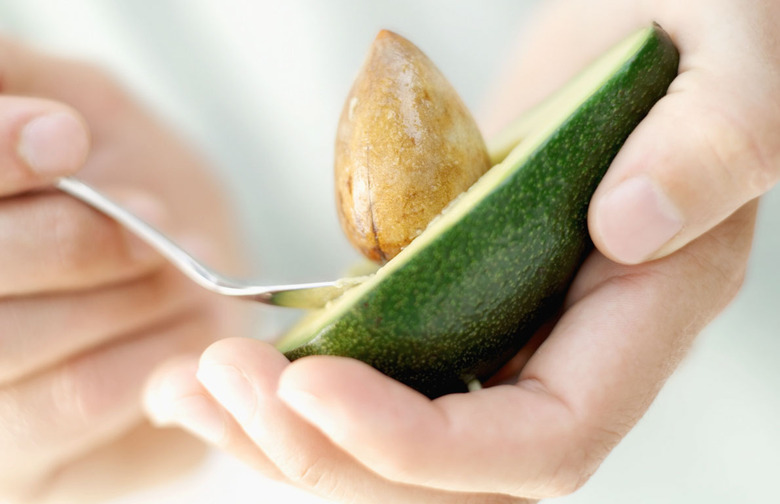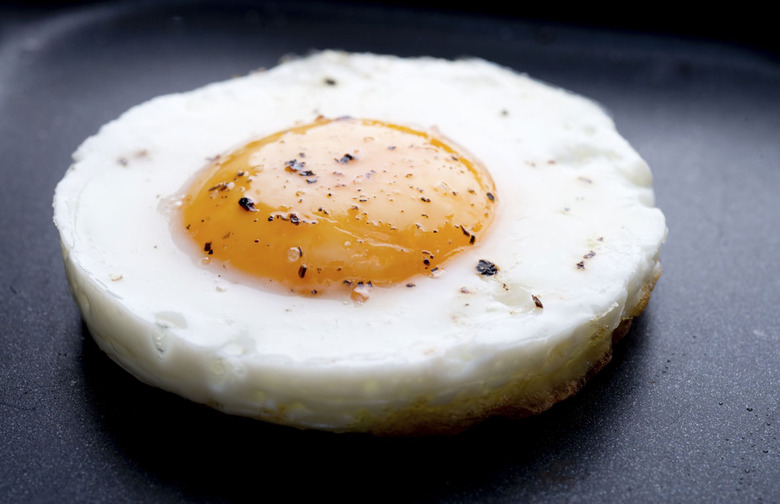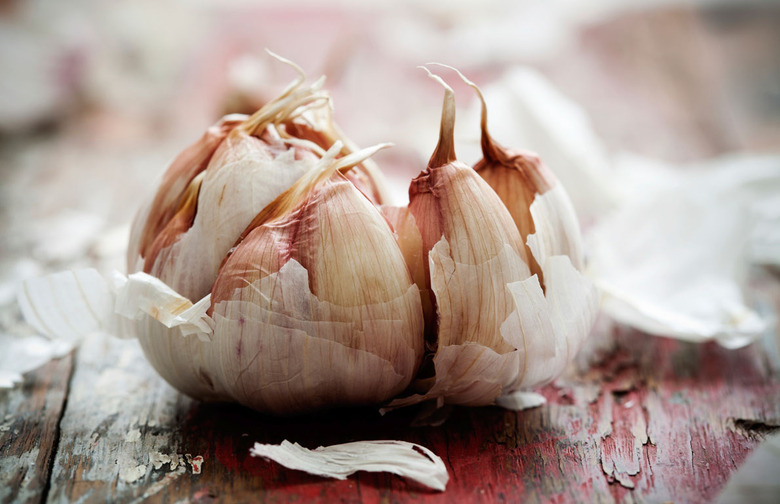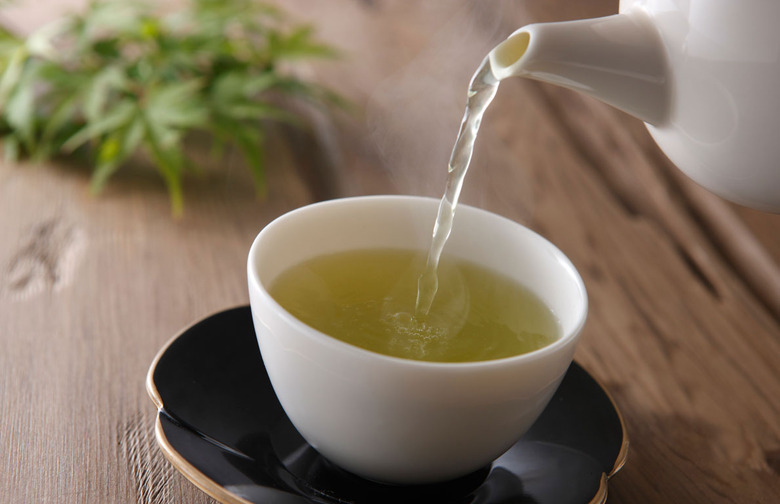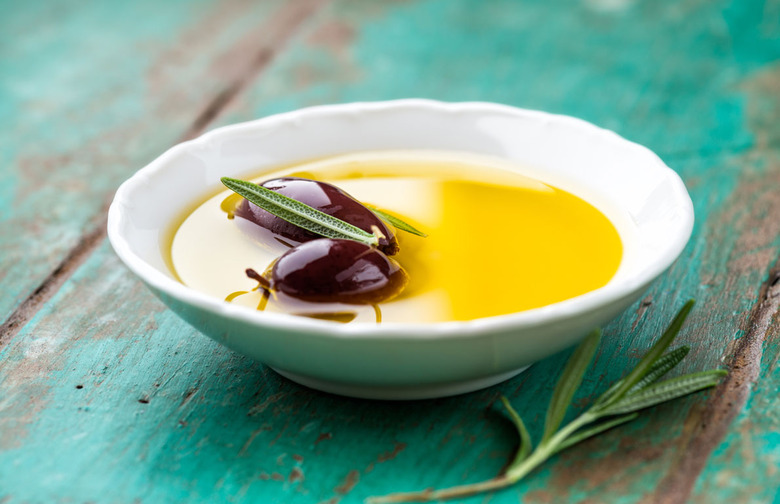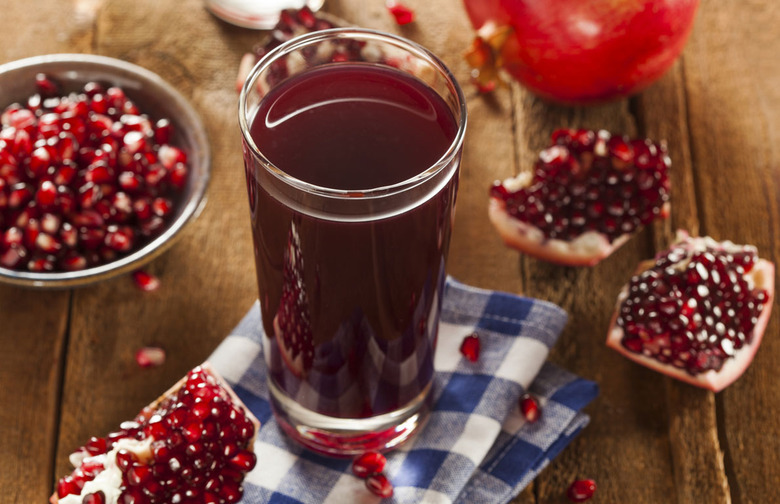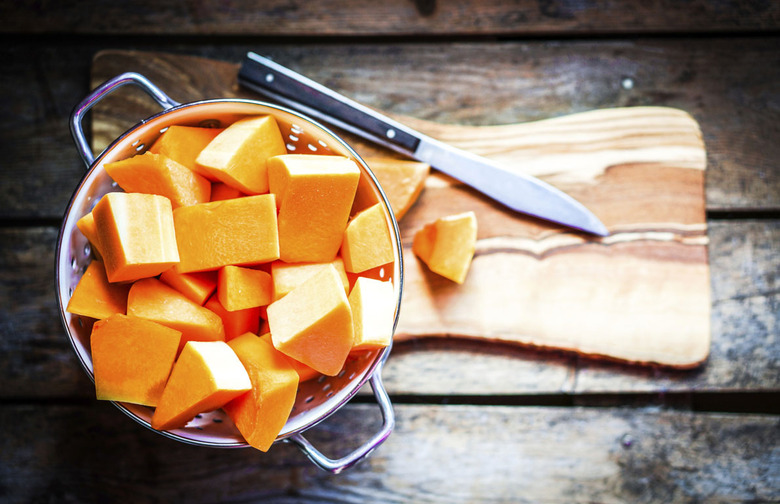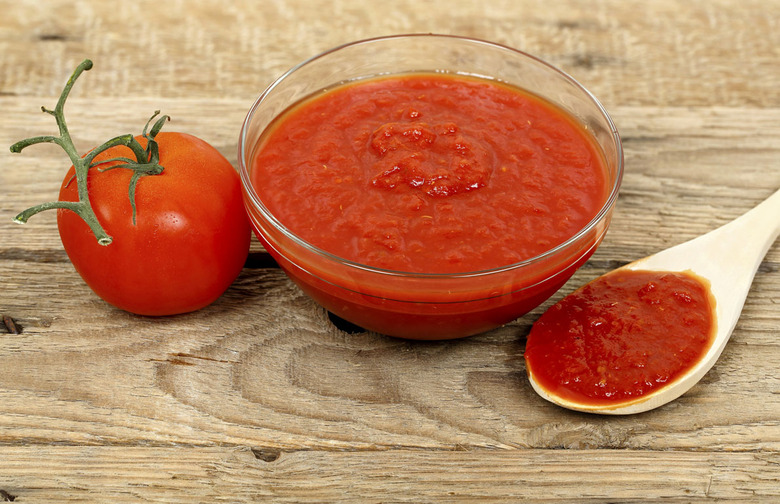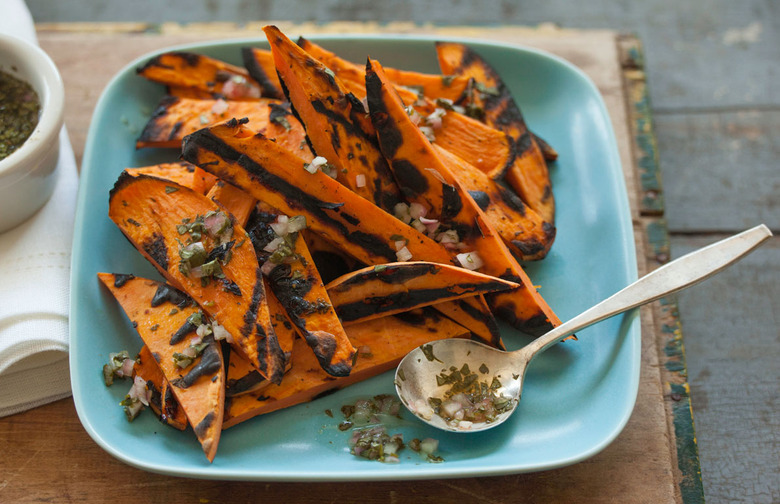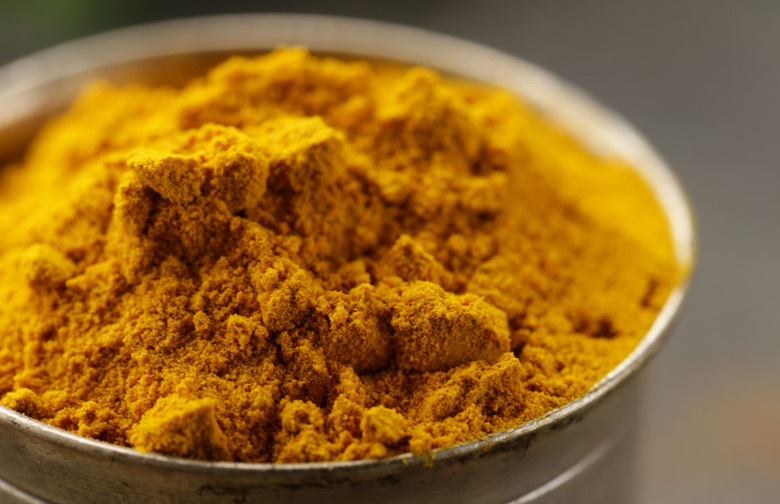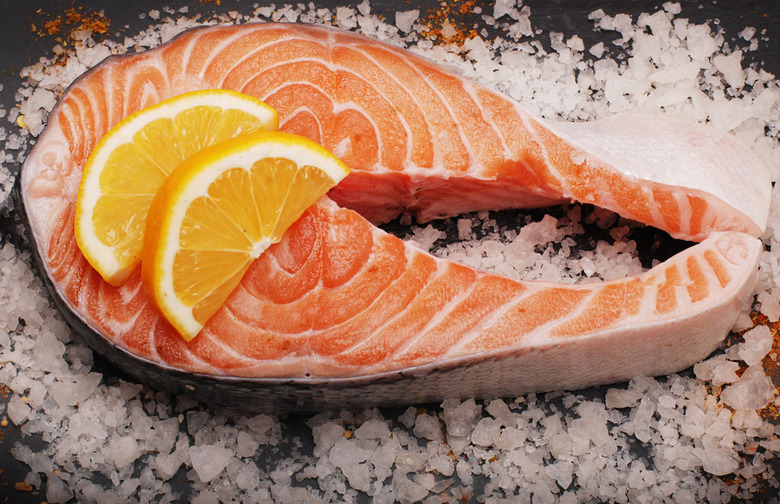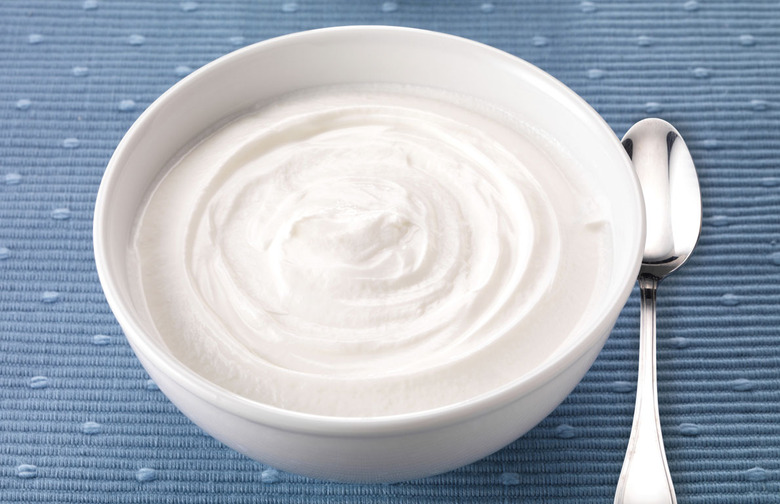Food-Based Remedies To Rejuvenate Your Skin
To get you glowing, we asked skincare professionals to tell us which foods we should eat and apply to get better, healthier skin. You won't believe how some of these foods affect your skin!
Almond Milk
"Almond milk is an excellent source of vitamin E, a known antioxidant. Antioxidants protect cells from damage caused by free radicals. Free radicals alter cell genetic code, resulting in mutated proteins. When mutation happens, cancer may develop. Free radicals often cause irreversible damage to the skin; they contribute to collagen and elastin depletion. Collagen and elastin are important substances that give the skin its elasticity and firmness. The collagen and elastin supplies of the skin are depleted after prolonged exposure to free radicals. As you get older, your body is unable to replenish the depleted supply; this is the primary cause of wrinkles, fine lines and other skin blemishes. Vitamin E, present in almond milk, protects the skin from the harmful effects of free radicals; this makes the skin healthy and younger-looking. Vitamin B2, also known as riboflavin, is found in abundance in almond milk. It helps the tissues of the skin, hair and nails to use oxygen. Riboflavin also assists in synthesizing tryptophan — an amino acid — and producing niacin in the process. Niacin, also referred to as vitamin B3, aids in circulation. The skin benefits greatly from proper circulation. Niacin also helps in hydrating the skin by trapping moisture in the cells."
— Dr. David E. Bank
Avocado
"Like olive oil, avocados contain monounsaturated fats, which are good fats. They're high in polyphenols and vitamin E, both of which have antioxidant effects. Antioxidants help combat oxidative damage that speeds up the aging or our skin, and good fats help nourish our skin cells, so both are essential for optimal skin health. Similar to avocados, olives have beneficial oils for our skin health (they're especially great for dry skin). You can eat olives and consume olive oil. Just be sure not to heat olive oil, because it oxidizes quickly."
— Dr. Trevor Cates, licensed naturopathic physician
Coconut
"Enjoy the whole coconut. There are benefits from the water, milk, meat, and oil from this precious plant. Coconut contains lauric acid, which is also found in mother's milk and is full of immune-enhancing properties. Our bodies convert lauric acid to monolaurin, which has antimicrobial effects that fight viruses, bacteria, and other infectious microorganisms — these properties are all great for skin health. Fresh coconut water from green coconuts contains antioxidants. I love using coconut oil for cooking, because it's stable at a high temperature and not as susceptible to oxidative damage from heat like other oils, such as the common vegetable oil. Plus, the oils are good sources of fats that help skin stay moisturized."
— Dr. Trevor Cates
Eggs
"Eggs are an excellent source of protein and essential fatty acids, both of which can help skin retain water and stay moisturized."
— Dr. David E. Bank
Garlic
"Garlic is a great detoxifier — something we really need, considering all the toxins we're exposed to on a daily basis. Those toxins create oxidative damage, which ages our skin quickly."
— Dr. Trevor Cates
Green Tea
"This antioxidant-rich, inflammation-busting beverage has a plethora of positive research-backed benefits for various aspects of wellness, including skin health. Among its benefits to skin health, research from Case Western Reserve University and the University of Alabama at Birmingham shows that drinking green tea may reduce your risk of skin cancer. Another study, from Georgia Regents University, shows that polyphenols eliminate free radicals, which can expedite the aging process and lead to cancer by altering DNA."
— Dr. Trevor Cates
Olive Oil
"Olive oil contains four major antioxidants that allow it to work as a cleanser and moisturizer. Among these antioxidants are vitamins A and E. Vitamin E has anti- aging benefits — it helps restore skin elasticity."
— Dr. David E. Bank
Pomegranates
"Pomegranates are full of antioxidants and have been shown to boost collagen. Pomegranate juice has been shown to help increase glutathione, which decreases with age, and is important for detoxification and the prevention of DNA damage."
— Dr. Trevor Cates
Pumpkin
"The vibrant orange color of this squash indicates that it's loaded with beta carotene, a powerful antioxidant. This gets converted to vitamin A, which helps prevent wrinkles and keeps your skin youthful and moisturized. This is the perfect food if you are experiencing dry skin because of the cold weather. Pumpkin is loaded with vitamin C, another antioxidant that protects collagen and boosts our immune systems."
— Dr. David E. Bank
Red Wine
"Everyone wants to have healthy, glowing skin, but not everyone knows that it is one of the many benefits of drinking red wine. The red wine benefits for skin are due to the antioxidants, which protect your skin and prevent it from aging. Red wine contains polyphenol. The antioxidant called resveratrol has anti-inflammatory properties which can protect the body from various diseases caused by inflammation. Apart from all this, it also boosts the brain by contributing to brain health and memory power and preventing diseases like dementia"
— Dr. David E. Bank
Tomato Sauce
"Lycopenes are antioxidants present in tomato paste and tomato sauces. There's great research on the benefits of lycopene for skin health and aging. If you have joint aches and pains, you may want to skip this one, because it's in the nightshade family."
— Dr. Trevor Cates
Sweet Potato
"In just one sweet potato you will find more than 200 percent of the recommended daily value of vitamin A. Vitamin A is important for having amazing skin, because it promotes the growth of new skin cells and increases the rate at which new growth happens, which leaves you with vibrant skin. Also, you'll get three grams of fiber from each sweet potato. Fiber keeps your digestive tract healthy and functioning properly during the holidays. A healthy and functioning digestive tract can help keep your breakouts to a minimum."
— Dr. David E. Bank
Turmeric
"A relative of ginger, turmeric is a powerful ingredient in your attempt to achieve younger and healthier looking skin. From the inside, it promotes better blood circulation and thus gives the skin a healthy glow. When applied topically, curcumin, which is the antioxidant flavonoid present in turmeric, helps fight breakouts and blemishes thanks to its anti-inflammatory properties. Paired with other skin-boosting ingredients, turmeric is also effective in reducing wrinkles and fine lines."
— Dr. Roshini Raj
Wild salmon
"Wild salmon is rich in Omega 3s, which have great anti-inflammatory properties. Since the root of many skin problems is inflammation, this is one of the most essential nutrients for skin health. And its pink color indicates that it contains the antioxidant astaxanthin, which studies show has sun-protective effects and can counteract UVA-induced skin changes. Astaxanthin is also found in microalgae, trout, krill, shrimp, crayfish, and crustaceans. If you have the choice between farmed and wild-caught salmon, always opt for wild. Not only does farmed salmon not contain the same amount of beneficial omega 3s, but it's also going to contain more environmental contaminants, like polychlorinated biphenyl (PBC)."
— Dr. Trevor Cates
Yogurt
"There is a growing body of evidence showing that ingesting probiotics and applying them topically can improve the condition of your skin and ease chronic skin conditions, including eczema, acne, and rosacea. When applied topically, probiotics secrete anti-bacterial and anti-inflammatory substances that help with these conditions and reduce skin sensitivity. They also work on the surface of the skin to help improve and strengthen the skin's natural protective mechanisms and maintain an equilibrium of good bacteria on the skin. When ingested, probiotics benefit the skin from the inside out. By maintaining the lining of the gut and creating a healthy and sealed barrier, they can stop system-wide inflammation that might trigger acne or rosacea. Plus, probiotics promote efficient digestion, upon which beautiful and clear skin is dependent."
— Dr. Roshini Raj
